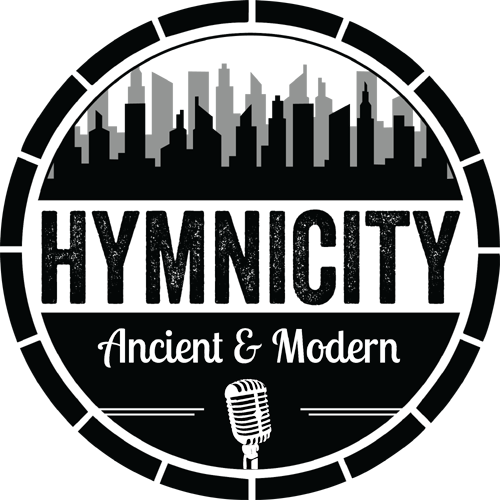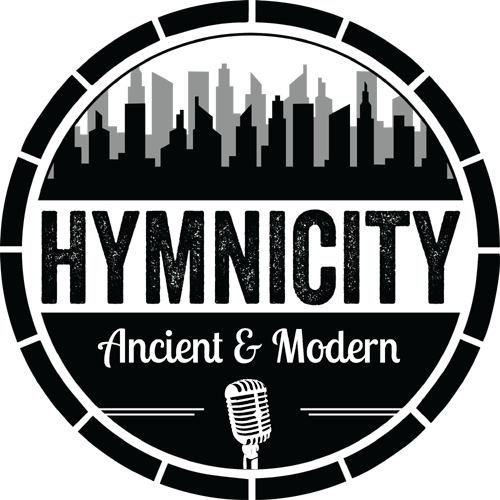Posts for ‘General’
Home » Blog» Josiah Conder
Home » Blog » GeneralPosted by David L. Ward on November 12th, 2008
(From the "Little Flock Hymn Book: Its History and Hymn Writers" by Adrian Roach)
Josiah Condor, the fourth son of Thomas Condor, was born in Falcon Street, Aldesgate, London, on Sept. 17th. 1789. His grandfather, Dr. John Condor, was a noted Dissenter clergyman. His father, Thomas, was also a strong Nonconformist and so Josiah grew up in this environment. At five years of age, smallpox blinded him in his right eye. Fearing the possible loss of his other eye, he was sent to Hackney for electrical treatment. His physician became his teacher, and carried him through the fundamentals of French, Latin and other studies. At fifteen he entered into his father's bookstore as an assistant. In 1810 we find him in co-operation with Ann and Jane Taylor and Eliza Thomas (who later became his wife) and some others in publishing a book called "The Associate Minstrels". It secured a second edition in 1812. He also edited a newspaper called the "Patriot" but was never out of financial problems, yet he went on encouraged by his Lord. He once had a fall from his horse, which laid him aside in much pain and suffering, but at that time he... (continue reading...)
» Joseph Hart
Home » Blog » GeneralPosted by David L. Ward on November 12th, 2008
(From "Hymn Writers of the Church" by Charles Nutter)
Hart, Joseph, a Congregational minister of England, was born in 1712 of pious parents. He was well educated, and was for many years a teacher of the classics. In early life he was pious, but relapsed into sin and exerted a most pernicious influence upon all with whom he associated. While in this backslidden state he wrote a pamphlet titled The Unreasonableness of Religion, Being Remarks and Animadversions on the Rev. John Wesley's Sermon on Romans viii. 32. But he was deeply convicted in his fortieth year, and betook himself to daily prayer and to reading the Scriptures. It was not, however, until he attended a service at the Moravian church in Fetter Lane, London, on Whitsunday, 1757, that he obtained peace. He now became an earnest and consecrated Christian, and many of his best hymns were written within the next two years following his conversion. His Hymns Composed on Various Subjects, with the Author's Experience were published in several editions during his lifetime (first edition, 1759) and subsequent to his death. This volume led to his being importuned to become a preacher, which he did, although in his... (continue reading...)
» John Newton
Home » Blog » GeneralPosted by David L. Ward on November 12th, 2008
(From "Memoirs of Hymn-Writers and Compilers" by John Gadsby)
John Newton was born in London, July24th, 1725. He was an only son. His mother, to whom he was particularly attached, herself taught him English, and that in such a way that, added to his own natural talents, by the time he was four years old, he could read any common book with propriety. She died before he was seven years of age, and he was then left to ruin wild, as is the case with too many children. His father married again the following year, and Newton was afterwards sent to a boarding-school in Essex. His father was then at sea, a commander in the Mediterranean trade. When 11 years old, his father took him with him to sea. In 1742 he was placed, with very advantageous prospects, at Alicant, in Spain, but his unsettled behavior and impatience of restraint rendered that design abortive. He had very little concern about religion, but was often disturbed with convictions. “I was,” he says, “fond of reading from a child; among other books, . Bennet’s ‘Christian Oratory’ often came in my way; and though I understood but little of it, the... (continue reading...)
» Charles Spurgeon
Home » Blog » GeneralPosted by David L. Ward on November 12th, 2008
Charles Spurgeon
» Charles Wesley
Home » Blog » GeneralPosted by David L. Ward on November 6th, 2008
(From A Dictionary of Hymnology, 1892)
Charles Wesley ... was the great hymn-writer of the Wesley family, -- perhaps, taking quantity and quality into consideration, the great hymn writer of all ages. Charles Wesley was the youngest son and 18th child of Samuel and Susanna Wesley, and was born at Epworth Rectory, [England] December 18, 1707.
In 1716 he went to Westminster School, being provided with a home and board by his elder brother Samuel, then usher at the school, until 1721, when he was elected King's Scholar, and as such received his board and education free. While he was at Westminster, his father received a letter from a wealthy Irish man, asking him if he had a son named Charles, and if so offering to adopt him and make him his heir. The acceptance of the offer was left to Charles himself, who declined it.
In 1726 Charles Wesley was elected to a Westminster studentship at Christ Church, Oxford, where he took his degree in 1729, and became a college tutor. In the early part of the same year his religious impressions were much deepened, and he became one of the first band of "Oxford... (continue reading...)
» Isaac Watts
Home » Blog » GeneralPosted by David L. Ward on November 6th, 2008
(From the Dictionary of National Biography. London: Smith, Elder, & Co., 1899)
Isaac Watts (1674-1748), hymnwriter, was born at Southampton [England] on 17 July 1674. His grandfather, Thomas Watts, a commander of a man-of-war under Blake in 1656, died in the prime of life through an explosion on board his ship. His father, Isaac, occupied a lower position, being described as 'a clothier' of 21 French Street, Southampton (1719). As deacon of the independent meeting, he was imprisoned for his religious opinions in the gaol of Southampton at the time of the birth of his son Isaac and in the following year (1675). In 1685 also he was for the same cause obliged to hide in London for two years. In later years he kept a flourishing boarding-school at Southampton. He had a liking for the composition of sacred verses. One or two of his pieces appear in the posthumous works of his son (1779), and several others in that volume are credited to him by Gibbons in his biography. He died in February 1736?, aged 85. His wife was daughter of an Alderman Taunton at Southampton, and had Huguenot blood in her veins.
Isaac Watts was... (continue reading...)
» Hymn of the Century
Home » Blog » GeneralPosted by Eric Schumacher on April 28th, 2008
Ok -- so you were thinking that this blog was dead!
In April of 2008 (!), Stephen Nichols predicts the "Hymn of the Century." Thoughts, brothers?
» On Taking the Lord’s Supper
Home » Blog » GeneralPosted by Eric Schumacher on October 4th, 2006
Currently, we take the Lord's Supper together once a month. We pass out the elements and take them together as a family.
I'm not a fan of taking the Lord's Supper individually. Jesus instituted the Supper with his disciples corporately. We only see it practiced in the New Testament corporately. It seems best to be me that we celebrate the Lord's Supper as a body, just as we will celebrate the Marriage Feast of the Lamb as one body.
I don't think that this poses any tension between emphasizing communion with other believers and communion with Christ. I think that there is ground for saying that at least some aspects of my communion with Christ occur in and with my communion with the body of Christ. When we strip the Lord's Supper of its corporate setting, we are missing something very important.
» On Taking the Lord’s Supper
Home » Blog » GeneralPosted by Kevin Larson on September 12th, 2006
Brothers, we are looking at different ways to celebrate the Lord's Supper at Grace Church. We do it weekly. Lately we have been passing out the elements and taking them, one at a time, together. What other ways have you done it? What do you prefer? Do you prefer approaches that emphasize our communion with each other or our communion with Christ Himself? How do we keep both in tension?
» The Northbrook Conference
Home » Blog » GeneralPosted by Eric Schumacher on August 23rd, 2006
I'd encourage our readers to consider attending The Northbrook Conference, October 13-14 at our church in Cedar Rapids. We'll be learning about "The Church: Temple of the Holy Spirit or Tower of Babel?" from Jim Hamilton. Should be a great time to learn to be a people for his glory!

 Featured Song
Featured Song

